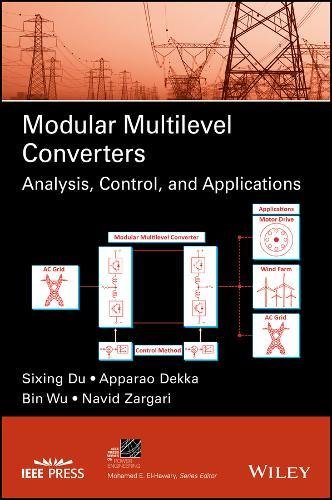

Most ebook files are in PDF format, so you can easily read them using various software such as Foxit Reader or directly on the Google Chrome browser.
Some ebook files are released by publishers in other formats such as .awz, .mobi, .epub, .fb2, etc. You may need to install specific software to read these formats on mobile/PC, such as Calibre.
Please read the tutorial at this link: https://ebookbell.com/faq
We offer FREE conversion to the popular formats you request; however, this may take some time. Therefore, right after payment, please email us, and we will try to provide the service as quickly as possible.
For some exceptional file formats or broken links (if any), please refrain from opening any disputes. Instead, email us first, and we will try to assist within a maximum of 6 hours.
EbookBell Team

5.0
78 reviewsAn invaluable academic reference for the area of high-power converters, covering all the latest developments in the field
High-power multilevel converters are well known in industry and academia as one of the preferred choices for efficient power conversion. Over the past decade, several power converters have been developed and commercialized in the form of standard and customized products that power a wide range of industrial applications. Currently, the modular multilevel converter is a fast-growing technology and has received wide acceptance from both industry and academia. Providing adequate technical background for graduate- and undergraduate-level teaching, this book includes a comprehensive analysis of the conventional and advanced modular multilevel converters employed in motor drives, HVDC systems, and power quality improvement.
Modular Multilevel Converters: Analysis, Control, and Applications provides an overview of high-power converters, reference frame theory, classical control methods, pulse width modulation schemes, advanced model predictive control methods, modeling of ac drives, advanced drive control schemes, modeling and control of HVDC systems, active and reactive power control, power quality problems, reactive power, harmonics and unbalance compensation, modeling and control of static synchronous compensators (STATCOM) and unified power quality compensators. Furthermore, this book: